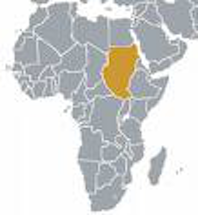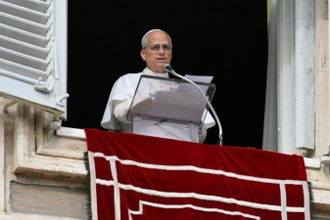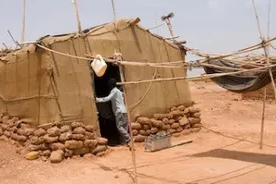Is the future of Sudan's Christians in peril?

After months of popular demonstrations, Sudan's democracy protests have been crushed with deadly force by the country's security services. At least 60 people were killed in the capital, Khartoum, on Monday. Speaking at a media conference in London on Tuesday, the Sudanese Doctors' Union said 600 people were injured and dozens of women, including female doctors, were raped during the surprise military operation. Soldiers also looted stores and demanded money from bystanders. The regime has cut the internet so the number of casualties in cities around the country is unknown.
Since December, peaceful sit-ins, strikes and protests have spread across Sudan, as people called for an end to military rule. In April, President Omar Bashir was imprisoned after three decades in power. He was replaced by a transitional military council which held talks with the Forces of Freedom and Change, representing the protesters. They had agreed on a three-year plan to move from the current repressive Islamist administration to a civilian one, including democratic elections.
The protests were sparked by public outrage at mismanagement of the economy and widespread corruption within the regime. However, as the demonstrations gained strength, its aims grew to include ending the forced imposition of an Arab and Islamist identity on the country's diverse population. Sudan's long-persecuted Christians were welcomed at the Khartoum sit-in, with Muslims forming protective rings around Christians as they prayed, and vice versa.
Human rights groups say that for years, Bashir's government bulldozed churches and harassed, tortured and jailed Christians and other democracy campaigners. However, the Forces for Freedom and Change envisaged a pluralist and secular future government. Moreover, in the now cancelled talks with the regime, the demonstration leaders insisted the years of military action against Sudan's non-Muslim and non-Arab populations in Darfur, Blue Nile and South Kordofan must end.
Monday's crackdown was led by the Rapid Support Forces (RSF), which consists of the former Janjaweed militia responsible for at least 300,000 civilian deaths in Darfur. The RSF was supported by the regular army, the police and the National Intelligence and Security Services. Witnesses say an estimated 10,000 to 20,000 troops are on the streets of Khartoum, and the city is in lockdown. The Sudanese Doctors' Union cited film on social media of troops pursuing injured protesters into hospitals, beating doctors who tried to treat them. Other RSF troops surrounded hospitals, preventing people entering. There are several videos of soldiers beating bystanders in the streets, and dumping bodies in the Nile.
Diplomats from the UK and US have called for an investigation of Monday's events. However, the Doctors' Union wants an independent body such as the United Nations to conduct such an enquiry. A spokesman said, "We don't trust the coup leaders. You can't kill people on the one hand and investigate the killing on the other."
Baroness Caroline Cox, who has campaigned for the rights of Sudan's Christians and other minorities for decades, called for the strongest possible diplomatic condemnation of the military attacks. Representatives of the Alliance of Sudanese Political Forces said on Tuesday that the international community must refuse to recognise the transitional military council now ruling the country. Sonja Miley from Waging Peace, a British NGO supporting Sudanese dissidents in the UK, is urging people to put pressure on their elected representatives and international decision-makers to support the aims of the demonstrators.
A representative of the Sudanese Communities in the UK claimed that the governments of Egypt and Saudi Arabia urged Sudan's transitional military council to end the mass demonstrations and strikes. "They don't want the Arab world to see an example of democratic change coming from below, from the streets, from the people." In addition, Gulf Arab nations involved in the war in Yemen have a great deal at stake: they have bankrolled the Khartoum regime, in exchange for the participation of at least 13,000 Sudanese troops on the ground in Yemen.


















